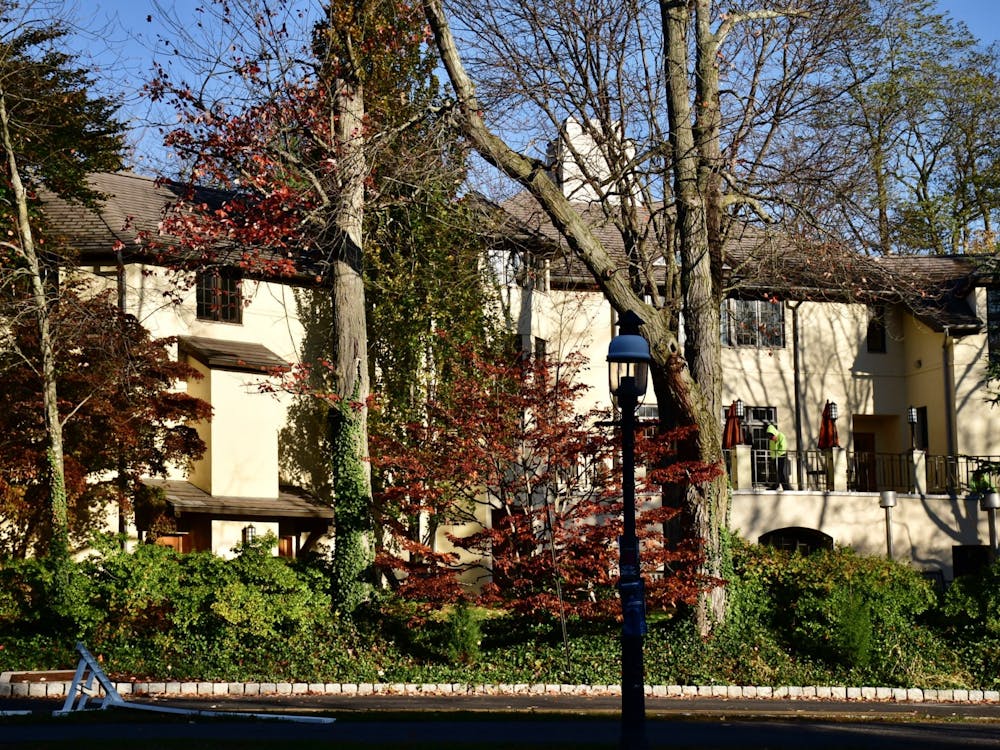Last week, I saw "Dear White People," a movie that follows the adventures of a group of black students at Winchester University, a fictional Ivy League school. The movie details the existence and rationale behind a blackface party put on by some of the school’s white students. The film is a comedy, and it is wickedly hilarious. More importantly, however, it starts a dialogue on several often ignored, incredibly important racial issues on today’s college campuses. It also does the useful service of presenting black characters that are allowed to be difficult and sometimes unlikeable without being cartoonish villains. It gives us black characters taking center stage, for once, not bobbing their heads sassily in the corner as the white protagonist leads the movie. For these reasons, I believe that everyone should go to the free screening of "Dear White People" at the Princeton Garden Theatre on Wednesday night, presented by the Fields Center, Princeton Latinos y Amigos, the Black Student Union and Princeton Asian American Students Association.
The film has enormous potential to spark conversation, especially because of its setting at a fictional Ivy League school and thus its subsequent similarity to Princeton and the racial issues that permeate this campus. In order for the film to do its job, though, it is important that a variety of people go see it. Campus events intended to promote dialogue, such as this one, can easily fail to be productive due to their self-selecting attendees. The sort of people who are inclined to go to such events are often the sort of people who already are thinking about the issue that the event coordinators want to raise awareness about. Even more counterproductive is the echo chamber that must then form. Because everyone who goes to the event already thinks in the same way, there is no discussion or dialogue. It’s just a bunch of people agreeing with one another.
Therefore, I challenge you to go to Wednesday night’s screening, especially if you are the sort of person who is not normally inclined to go to events focused on issues of diversity. I think the movie has the potential to expand people’s horizons, but we have to the take the first step: actually going to see it. That is not to say that there is no value in going if you are already interested in these sorts of discussions. Obviously, there can be a great deal of emotional validation in seeing characters and situations you know to exist finally represented on the big screen. And, of course, the movie is really, really funny; it has significant artistic and entertainment value.
"Dear White People" is not a perfect movie. From a technical standpoint, it is frequently amateurish. The writer-director’s relative inexperience becomes obvious through his occasional reliance on clichés, both in the screenplay and in the choice of music. However, these issues are thankfully overshadowed by well-drawn characters and clever jokes.
The film is also not to be taken as the final word on race relations on college campuses. Some of the politics of the movie are problematic. I don’t want to get into spoilers, but the way hair was treated has drawn some criticism. More obviously, the choice to use a light-skinned girl as the lead was also considered disappointing by some. Finally, the agency of female characters has been questioned, leading to charges of possible misogyny.
Although these and other issues could have been treated differently or more sensitively, that does not change the efficacy of the film as a conversation starter among Princeton students. This flawed movie is a very valuable tool, and I hope that everyone chooses to use it, whether or not they generally engage in diversity initiatives on campus. Go to the Garden Theatre Wednesday night at 8 p.m. You won’t regret it.
Zeena Mubarak is a sophomore from Fairfax, Va. She can be reached at zmubarak@princeton.edu.







